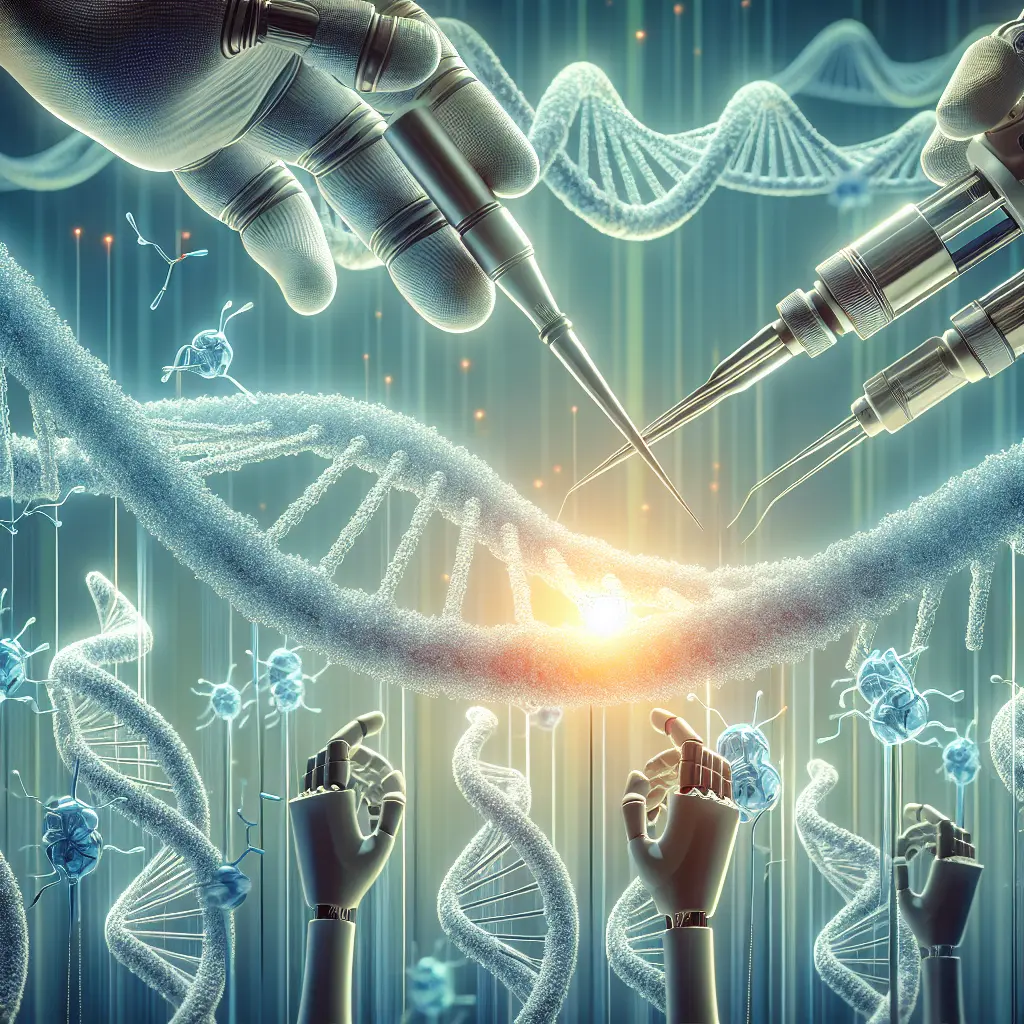
In recent years, the advent of gene editing has sparked a revolutionary transformation in the realm of rare genetic disorders, offering unprecedented hope for patients worldwide. This cutting-edge field, spearheaded by CRISPR technology and its CRISPR-Cas9 system, holds the promise of groundbreaking genetic therapy and precision medicine. By harnessing the power of genome editing, scientists can now target genetic mutations with unparalleled accuracy, paving the way for innovative gene therapies that address inherited disorders once deemed untreatable.
The impact of genetic modification extends beyond theoretical possibilities, as ongoing genetic research and therapeutic gene editing are already yielding tangible results. These advancements in gene therapy represent a significant leap forward in biotechnology in healthcare, as they enable the development of rare disease treatment options that are both effective and personalized. The fusion of personalized medicine and genetic disorder solutions offers a beacon of hope for individuals affected by rare genetic conditions, promising a future where their afflictions can be managed or even cured.
The Promise of CRISPR Technology
CRISPR technology, particularly the CRISPR-Cas9 system, has emerged as a powerful tool in the realm of genetic therapy. By enabling precise modifications to an organism's genome, CRISPR has transformed our ability to target and rectify specific genetic mutations. This precision medicine approach holds tremendous potential for rare disease treatment, offering solutions that are both effective and personalized.
Recent developments have underscored the potential of CRISPR in therapeutic gene editing. For instance, researchers are exploring its use in editing fetal genomes, which could pave the way for treating genetic disorders before birth. However, this prospect raises ethical considerations that must be addressed proactively. A recent article in Nature discusses the implications of editing fetal genomes and calls for a robust dialogue on the topic.
Breakthroughs in Genetic Therapy
The application of gene editing extends beyond theoretical possibilities, as ongoing genetic research yields tangible results. One notable example is the partnership between Baltimore’s Lieber Institute and Black community leaders to explore genetic factors affecting brain health. This collaboration aims to ensure equitable access to advancements in biotechnology in healthcare, emphasizing that no community is left behind in the quest for rare disease treatment source.
Furthermore, case studies have demonstrated the efficacy of CRISPR in correcting genetic mutations associated with specific disorders. In a groundbreaking trial, scientists successfully used CRISPR to modify the gene responsible for sickle cell anemia, offering hope for a permanent cure. Such innovative gene therapies underscore the transformative potential of CRISPR technology in addressing inherited disorders.
Challenges and Ethical Considerations
Despite these promising advancements, the path forward is not without challenges. Ethical concerns surrounding gene editing, especially in human embryos, have sparked widespread debate. The question of consent, potential unintended consequences, and the moral implications of altering human DNA require careful consideration. As we stand on the brink of editing fetal genomes, it's crucial to engage in comprehensive discussions about these ethical issues.
Moreover, regulatory frameworks need to evolve in tandem with scientific progress to ensure safe and ethical applications of gene editing technologies. The development of guidelines by international bodies will play a pivotal role in navigating these complex waters and ensuring responsible use of CRISPR technology source.
The Role of Personalized Medicine
Personalized medicine represents a paradigm shift in how we approach rare genetic disorders. By tailoring treatments to an individual's genetic profile, healthcare professionals can deliver more targeted and effective interventions. The fusion of personalized medicine with genetic disorder solutions offers a beacon of hope for those affected by rare conditions.
One exciting development is the use of CRISPR for personalized cancer therapy. Researchers are leveraging genetic modifications to develop treatments that specifically target mutations unique to a patient's tumor. This approach not only enhances treatment efficacy but also minimizes side effects, marking a significant leap forward in precision medicine source.
The Future of Gene Editing
As we look ahead, the future of gene editing appears bright and full of possibilities. Ongoing rare disease research continues to push the boundaries of what is possible, bringing us closer to a world where genetic modifications redefine healthcare outcomes.
The potential of gene editing extends beyond treating existing conditions. Scientists are exploring its use in preventing genetic disorders altogether by editing germline cells—those passed on to future generations. While this prospect raises further ethical questions, it highlights the vast potential of genome editing in reshaping our approach to inherited disorders source.
Conclusion: Embracing the New Age of Medicine
In conclusion, gene editing stands as a testament to human ingenuity and the relentless pursuit of knowledge. As we delve deeper into its transformative potential, we are on the cusp of a new age in medicine—one where genetic therapy advancements offer hope for managing or even curing rare genetic disorders.
By embracing these innovations responsibly and ethically, we can unlock a future where therapeutic interventions are tailored to individual needs. The continued collaboration between scientists, policymakers, and communities will be essential in navigating this exciting frontier and ensuring that everyone benefits from the promises of gene editing.
As you reflect on this unfolding narrative, consider your role in shaping the future of gene editing. Whether through research, advocacy, or simply staying informed, your engagement is vital. Share your thoughts and insights in the comments below—what steps should we take to balance innovation with ethical responsibility? How can we collectively craft a healthier future for all?
Together, let's embrace this exciting frontier with an eye toward progress and equity. The possibilities are vast, and the journey has just begun.
Author: Sarah Brighton